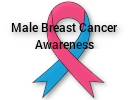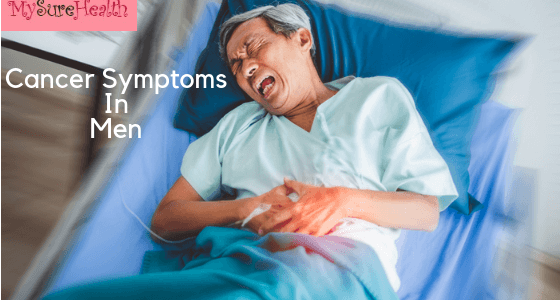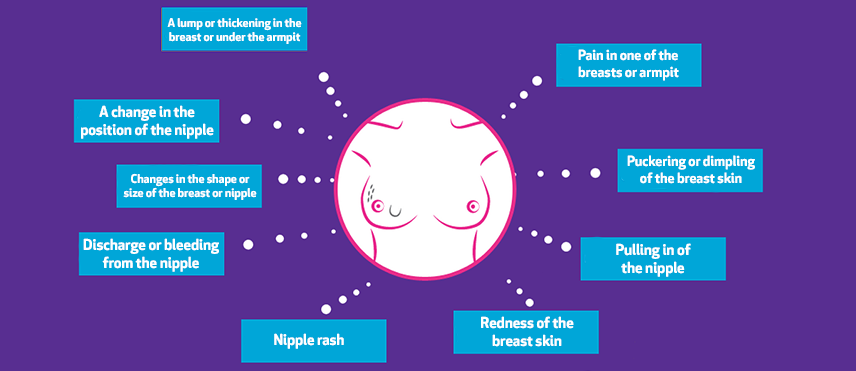Men 15 Cancer Symptoms: Experts say that Men may benefit greatly by being alert to particular cancer symptoms that take a visit to the physician’s office earlier rather than later.
Nevertheless, in regards to scheduling physician visits, guys are notorious foot-draggers. Actually, many Men would not visit the physician if it were not for the girls in their lifetime. Men frequently Have to be pushed by women to get screened for cancer.
That is unfortunate. Regular preventative care may detect cancer and other diseases in their early phases. When cancer is found early, there are far more choices for therapy. That means there will also be far better opportunities for a remedy.
Some cancer Symptoms in men are particular. They involve particular body parts and might point right to the prospect of cancer.
Other symptoms, however, are obscure. For example, pain which affects many body components may have many explanations. It may or might not be an indication of cancer. However, you can not rule out cancer without visiting a physician.
Let Discuss Men 15 Cancer Symptoms
1- Changes in the Skin:
You should be attentive to not merely changes in moles — a renowned indication of potential skin cancer but also changes in skin pigmentation.
The expert States that unexpectedly developing bleeding on the skin or excessive scaling are all grounds to check with your physician. It is hard to say just how long it’s too long to detect skin changes, but many experts say to wait more than a few weeks.
To Learn What is causing the skin varies, your physician should have a careful history and perform a careful physical examination. The health care provider may also order a biopsy to rule out cancer.
2-Infection:
As they age, most we frequently complain of growing aches and pains. However, pain, as obscure as it could be, may be an early symptom of several cancers. Most pain complaints, however, aren’t from cancer.
Any pain That endures, as stated by the American Cancer Society, ought to be checked out by your doctor. The health care provider should have a careful history, get additional information, and then determine whether further testing is essential.
When it is not cancer, then you will still gain from the trip to the workplace. That is because the physician can work with you to learn what’s causing the pain and also determine the correct therapy.
3-Breast Volume:
If you are like most guys, you have probably never considered the chance of having breast cancer. Even though it is not common, it’s possible. “Any new mass in the breast region of a person has to be checked from a doctor.
Additionally, The American Cancer Society describes other debilitating signals between the breast that guys in addition to girls ought to pay attention to. They comprise:
- Skin Care Dimpling or puckering
- Nipple retraction
- Redness or scaling of the nipple or breast area
- Nipple discharge
When you Seek advice from your doctor about any one of these symptoms, expect him to have a careful history and perform a physical examination. Then, based on the findings, the physician might order a mammogram, a biopsy, or other tests.
Additionally, Any swelling, lump, or sense of heaviness in the scrotum shouldn’t be ignored. Some pancreatic cancers happen very fast. So early detection is particularly crucial. “Should you feel a tough lump of coal [on your testicle], get it checked immediately.
Your Physician Should perform a testicular examination and a general evaluation of your wellbeing. When cancer is suspected, blood tests can be arranged.
You could also undergo an ultrasound examination of your scrotum, and your physician may choose to do a biopsy. A biopsy demands the elimination of the whole testicle.
4- Changes in the Lymph Nodes:
If you discover a bulge or swelling in the lymph nodes under your armpit or on your neck or anywhere else — it might be a cause of concern. If you’ve got a lymph node that has progressively bigger, and it has been more than a month, then visit a physician.
Your Physician Must examine you and determine some related problems that can describe the lymph node enlargement, for example, disease. When there is absolutely no infection, a physician will typically dictate a biopsy.
5- Fever:
If you have got an unexplained fever, then it might indicate cancer. Fever, however, may also be an indication of pneumonia or some other illness or disease that needs treatment.
Most cancers Will lead to fever sooner or later. Many times, fever happens after cancer has spread from the original website and invaded another area of the body. Fever may also be brought on by blood cancers like lymphoma or leukemia, according to the American Cancer Society.
It is best Not to dismiss a fever that cannot be clarified. Check with your physician to learn what may be causing the illness and also to ascertain its appropriate therapy.
6- Weight Loss Without Attempting:
Sudden weight loss is an issue, “Many people do not eliminate weight easily.” He is talking about more than merely a couple of pounds from a pop-up exercise regime or into eating less due to a hectic schedule.
If a person loses over 10 percent of the body weight at a period of time of 3 to 6 weeks, it is time to find the physician.
Your Physician Ought to do a general physical examination, ask you questions regarding your diet and workout, and ask about other signs. Depending on that advice, the health care provider will determine what other tests are necessary.
7- Gnawing Abdominal Anxiety and melancholy:
“Any man (or girl ) who has got a pain in the gut and is feeling miserable needs a checkup. Experts have discovered a connection between depression and pancreatic cancer.
Other symptoms of esophageal cancer may include jaundice, a change in stool color — frequently grey — a darkening of the urine. Itching through the entire body may also happen.
Anticipate your Physician to perform a careful physical examination and have a history. The health care provider should order tests such as an ultrasound, a CT scan or possibly, in addition to other lab evaluations.
8- Indigestion:
Many men, particularly as they get old, believe”heart attack” if they get bad indigestion. But persistent indigestion can indicate to cancer of the stomach, throat, or stomach. Persistent or worsening indigestion ought to be reported to a physician.
Your Physician Should have a careful history and ask questions regarding the stomach episodes. Depending on the history along with your replies to the queries, the Physician will determine What evaluations are necessary.
9- Fatigue:
Fatigue is another obscure symptom which may point to cancer in men. However, many other issues could lead to exhaustion also. Like Stress, fatigue may set in after cancer has increased. However, according to the American Cancer Society, it might also occur early in cancers like colon cancer, or prostate cancer.
If you frequently Feel extremely exhausted and you do not get better with rest, check with your physician. The health care provider should assess the fatigue together with some other symptoms so as to ascertain its origin and the correct therapy.
10- Changes in the Testicles:
Testicular cancer occurs most commonly in males aged 20 to 39. The American Cancer Society recommends that men receive a testicular examination by a physician as part of a regular cancer-related checkup. Some physicians also indicate a monthly self-exam.
11- A Continuous Cough:
Coughs are anticipated, of course, with colds, the flu, and allergies. They are also sometimes a negative effect of a drug.
However, an extremely prolonged cough — characterized as lasting more than four or three months — or an alteration in a cough shouldn’t be dismissed. Individuals cough routines warrant a trip to the physician.
They could be an indication of cancer, or they may indicate some other problem such as chronic bronchitis or acid reflux.
12- Mouth Changes:
If you smoke or chew tobacco, then you have to be particularly alert for any white spots in your mouth or white stains in your tongue. These modifications may signal leukoplakia, a pre-cancerous region which could happen with continuing annoyance. This illness can progress to prostate cancer.
You should Report the adjustments to your physician or dentist. The dentist or physician should have a careful history, inspect the changes, then determine what other tests may be required.
Your Physician Should have a careful history, examine your neck, listen to your lungs, then decide their work with a spirometry test, also, if you’re a smoker, arrange X-rays. When the main reason for the coughing is recognized, the health care provider will work with you to ascertain a treatment program.
13- Difficulty Swallowing:
Some guys may report difficulty swallowing but then discount it, Lichtenfeld says. “Over time they alter their diet into a more liquid diet plan. They begin to drink soup” But swallowing problems, ” he says, might be an indicator of a GI cancer, such as cancer of the esophagus.
Let your Doctor know if you’re having trouble swallowing. Your physician should have a careful history and maybe purchase a torso X-ray along with a barium swallow. The health care provider can also send one to an expert to get an upper GI endoscopy to test your stomach and upper GI tract.
14- Blood Where It Should Not Be:
“Anytime you see blood coming out of a body area in which you’ve never noticed it before, visit a physician. Expert says. “Should you start coughing up blood, spitting up blood, have blood from the gut or in the urine, then it is time for a physician visit.”
It is a mistake to presume blood in the feces is only out of hemorrhoid. “It may be colon cancer.
Your Physician Should ask you questions regarding your symptoms. The physician may also order tests such as a colonoscopy. This is an assessment of the colon with a long flexible tube with a camera on one end. The objective of a colonoscopy would be to recognize any symptoms of cancer or precancer or determine some other causes of the bleeding.
15- Allergic Problems:
As men age, prostate problems become more regular. Those issues include the following:
- The impulse To urinate more frequently, particularly at nighttime
- A feeling of urgency
- A sense of not completely emptying the bladder
- An inability to begin the urine flow
- Urine leaking while coughing or laughing
- A portion of the pee flow
“Every Guy Will create these issues because he gets old. However, as soon as you observe these signs, you should seek medical care.” That is particularly true when the symptoms get worse.
Your Physician Must do a digital rectal examination, which will inform him whether the prostate gland is enlarged or has nodules on it. The prostate gland develops as a person ages. It is most often brought on by a noncancerous condition called benign prostatic hyperplasia or BPH.
Your Physician Should also order a blood test to look at the degree of prostate-specific antigen or PSA. PSA is a protein made by the prostate gland, and the evaluation is utilized to determine the chance of prostate cancer.
If the Physician finds abnormalities in the prostate or in the event the PSA is greater than it ought to be, your physician will refer you to a urologist and possibly arrange a biopsy. Prostate cancer could be present even with a normal PSA level.






















